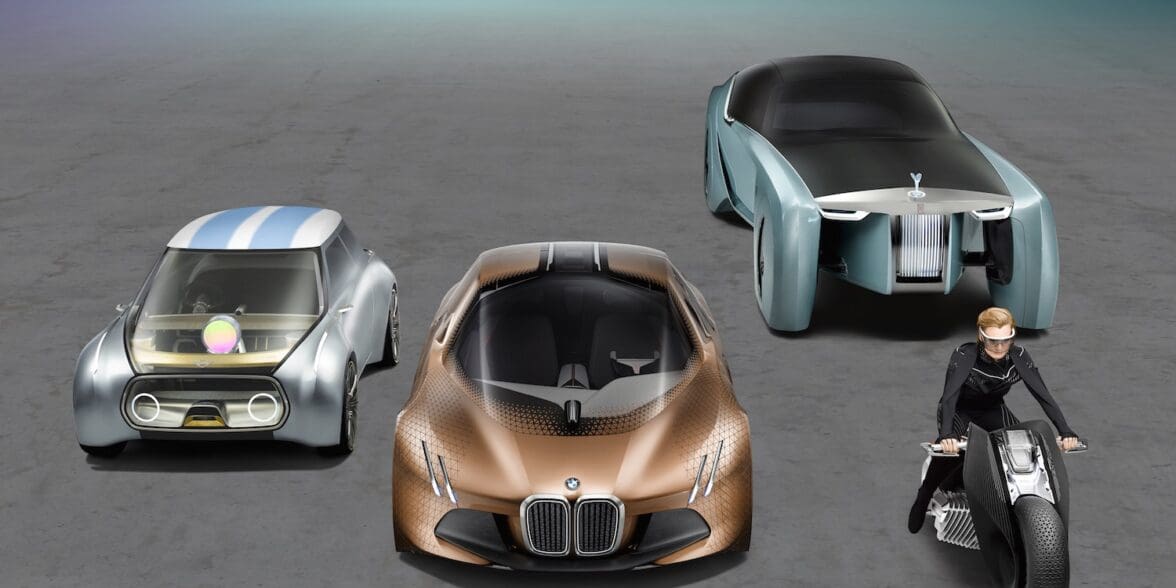Self-driving cars, trucks and even motorcycles, are coming faster than we think, but experts have assured riders there is nothing to fear.
In fact, BMW Motorrad spokesman Karl Viktor Schaller says they will make riding safer because autonomous vehicles (AVs) will be virtually crashproof.
His announcement comes in a week that BMW Motorrad announced their vision of the future for motorcycles with the Vision Next 100 concept.

The bike would not only balance itself but include so many interventionist electronic safety aids they say a helmet and protective clothing would not be necessary.
The announcement also comes in the same week as the 23rd Intelligent Transport Systems World Congress in Melbourne.
ITS expert Kim Thomas of Aurecon told the congress Australia would gradually introduce AVs in coming years.
Car companies such as GM and Tesla believe half their fleet will be autonomous within the next eight years.
Fully autonomous fleet
Kim told the 7000 delegates from 60 countries that Australia would have a “full autonomous fleet by around 2050”.
“Improved safety levels and efficiency on our road network are what excite me about our autonomous future,” she says.
“Through the clever use of cooperative technologies and with the lack of incidents from human error, our road networks will be safer, better managed and less congested than ever before.”
Federal Chamber of Automotive Industries president and Toyota Australia boss Dave Buttner extolled the virtues of AVS.
“A fully managed and integrated road and vehicle network will reduce congestion and get us to our destinations faster, reduce risks, drop our stress levels and increase our productivity,” he says.
“The brave new world of efficient transportation beckons.”
Karl agrees: “When robots are at the wheel, far fewer bikers will die on the road, which won’t be lost on all those people who pine for a motorcycle but have always been too scared to buy one,” he says.
“It would mean a dramatic enhancement in safety for the motorbike and it would guarantee a wider user group.”
He says cars traveling in the same direction as a motorcycle often don’t notice the bike overtaking.
“Cars making a turn while coming from the opposite direction either fail to see the oncoming bike, or misjudge its speed,” he says.
“Robot cars, in theory, won’t make either of these mistakes. At first, they will be able to “see” the motorcycle with sensors or radar and either alert the driver or actively prevent the vehicle from cutting off the bike.”
Motorcycles that talk
But that’s just the beginning, he says.
Karl sees a future where motorcycles will “talk” to all vehicles on the road. They will constantly remind them where they are, where they are heading, and at what speed.
“We can use that to build an electronic safety cage around a motorbike,” Karl says said.
Boston Consulting Group senior partner Xavier Mosquet believes this increased perception of safety will increase motorcycles sales.
“Once every aspiring biker realises that the driver next to him isn’t an existential threat, sales will climb in some places,” he says.
Self-riding motorcycles
Self-riding motorcycles like BMW’s concept are also not far off.
Yamaha and Kawasaki are already developing self-riding and artificial intelligence technology.

However, Yamaha says self-riding motorcycles will be about a decade behind self-driving cars.
In the meantime, technology that warns riders or intervenes if we make bad decisions is coming much sooner.
Mandatory safety?
The concern is that governments will decide these should be mandatory and take out all the fun of riding.
Karl disagrees: “The trade-off for (self-driving) cars getting safer is that it may make riding in them dull. But biking will be safer while remaining fun,” he says.
“Driving a motorcycle will be, well, driving. Riding in a car will largely be about checking e-mail and catching up on Game of Thrones.
“We are not about going from A to B. Motorbikes are about going from A to A. Our business is pleasure.”


